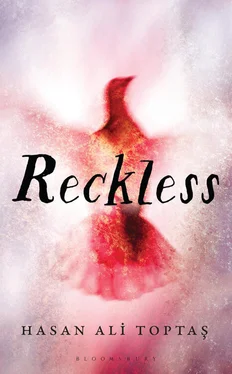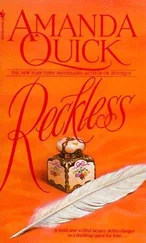Veysel Hoca had been hit in the shoulder, and when the soldiers from the company came to collect him, they lifted him up much too roughly. They put him into an open jeep and took him to Urfa to be examined.
All the soldiers came running in from the Seyrantepe stations, wanting to see Hayati, and no one more than Osman of Selçuk, but the sergeant opened his arms to keep them from getting too close. In an anguished, ropy voice, he said, ‘Stand back, my friends. I beg of you, stand back.’ At these words, the men stood back, and there they waited, in tears. The only one who went in to look at Hayati close up was the commander; kneeling next to his head, he straightened Hayati’s cap, and then he bent down, so that the men wouldn’t see him cry.
And while he cried, Kenan was standing still next to Ziya, tears brimming in his eyes.
‘Do you know what?’ he said. ‘None of this seems real.’
‘Not to me, either,’ Ziya said.
Then he turned around and looked at the two horses lying on the other side of the barbed wire, and the two men in shalwar trousers lying next to them. A soldier from the company was standing guard, with his rifle held crossways, but he had his back to them, and was looking at Hayati.
Later on that day, before Hayati departed for the village of Acıpayam in Denizli in his flag-covered coffin, the commander reassigned most of the men at Seyrantepe Station, sending some to Yıldıran and Mezartepe, and others to Boztepe, and quite a large number to Telhamut, but Ziya was not amongst them. That was why, when the rest of them loaded their belongings on to the back of the truck and climbed in after them, it was only the two of them standing there, Ziya and the sergeant. And once the truck was out of sight, they walked over to the two unclaimed soldiers lying there in their graves; as flashes of light spun out from the mirror that was hanging from the branch of the almond tree, they stood side by side in the grass and looked down at the border, and at the station where Hayati had given his life.
‘After the truck drops off all your friends, it will drop other soldiers off here,’ said the sergeant, in a voice so low he was almost speaking to himself. ‘And also, the commander is moving me to Yıldıran Outpost, so as soon as this other sergeant comes to replace me, I’ll be leaving.’
‘So why did he leave me here?’ Ziya asked.
‘You’re going back to Ceylanpınar, to work with the clerk,’ the sergeant told him. ‘That’s what the commander said.’
And so it was that Ziya climbed up into the passenger seat of a small truck that came for him that evening, and returned to the big, grey building in Ceylanpınar; his first stop was the munitions depot, where he turned in his rifle, his canteen, his cartridge box, his charger and his bullets. The next morning, he sat down in front of a typewriter on the second floor, so that the humpbacked clerk who was to be discharged three weeks later could teach him which document was to be drawn up when, and how.
Everything had changed so fast: for him at least, the grinding hell of life on the border had suddenly given way to a story to be lived through documents on a desk. And even more important, he was the one who was shaping this story: he would wake up early to take the reports coming in from the outposts by phone; if there’d been an incident, he would take down the names of the guards who had given a rough account to their sergeants and determine how many bullets they had used, and then he would sit down at the table and roll some yellow onion skin into that creaking typewriter and begin typing at once. At such and such a time, gendarme X and gendarme Y, who were standing guard in such and such a station, under the command of such and such an outpost, itself under the command of this company, spotted intruders passing over from Syria to Turkey, and after warning them three times, and telling them to stop, the intruders answered with gunfire, whereupon a skirmish started, of which the outcome was as follows. . this was how these stories went, making no mention of the well water, or the lice, or the wooden outhouse, or the water they had to scoop up with a tin can and pour over their heads when trying to wash themselves, or the mosquitoes, or the pieces of bread they ate in the middle of the night, in their trenches, or the letters they sent home, never knowing if they got there, or the fear, or the melancholy, or the flavourless food. Not a mention of any of this, of course. After completing a summary report that left out even the shadow of the truth, the time came to sketch out the incident itself. First he would draw a double line down the full length of the page, to indicate the route of the railroad that divided Turkey from Syria. Then he would draw another line and mark it with crosses at intervals to indicate the barbed-wire fence, and next to that he would indicate the sand track with a broken line, and in the empty space between this and the railroad he would write m i n e f i e l d, taking care to leave spaces between the letters. And if any smugglers had died in the skirmish, they were shown as stick figures lying in this minefield, or the sand track. Sometimes he had to include dead horses and dead sheep and bales of tea in these sketches. But if, say, ten bales of tea had been seized, only two or three or four would be surrendered to customs; the rest would most certainly be distributed to the guardhouses so that the soldiers could have their fill of tea. This was why Ziya almost never had to sketch in those little tea chests. And this was how he finished off those documents, which he would then put into their dossier, and take down to the commander’s office, to have them signed.
Ziya already knew it from his father’s letters, but the commander had yet to tell him that they came from the same town; when Ziya stepped into his office, the commander would give him a warm look, as if he could see Ebecik and Hacı Veli, standing there before him, but then he would pull himself together, so fast you might think he feared being caught in the commission of a crime, as his gaze turned to his uniform. Or perhaps, when Ziya stepped into his office, Ebecik and Hacı Veli stuck their heads in with him, and began to harangue him in whispers. Maybe that was why, if there were many documents to sign, he’d say, ‘Go and wait outside,’ in a very cold voice. When his work was done, he would hop into his open-topped jeep and speed off to Telhamut, eyes glued to the road, and no one would see him until noon the next day.
If there were no more documents to prepare, and no more messages from the exchange for him to transmit to the company by phone, Ziya would usually go out to the garden after the commander left. Because it was forbidden to go into the market, he would spend hours walking up and down that dry garden, with its stone walls and its arbour in the far corner. And while he was walking up and down, he could hear the horse carriages and the minibuses passing down the road on the other side, and sometimes he could hear women and children talking. And later, the aroma of that bread they cooked on their stovetops would float over with their voices, and doors opening and shutting, and curtains fluttering, and the red echoes of peppers hanging in strings from the frames of distant windows. And late in the afternoon, a little old man with his long hair growing into his beard would appear at the foot of the garden, a gaggle of children in his wake. Taking no offence as the giggling children pelted him with bottle caps, he would jump over the wall, this old man, and shuffle in his plastic slippers to the rubbish bins next to the kitchen door. Taking out the plastic bag in his pocket, he would fill it with leftovers. After seeing this ragged old man a few times, Ziya grew curious, and asked the cooks who he was.
Читать дальше












